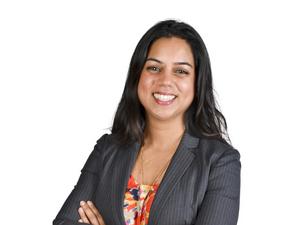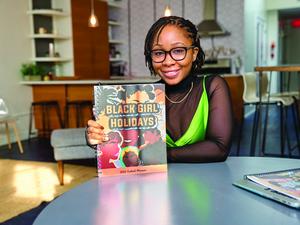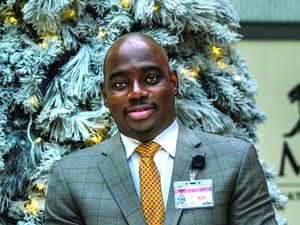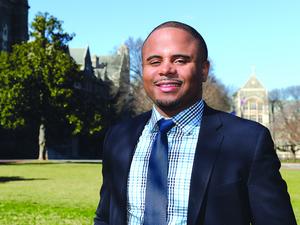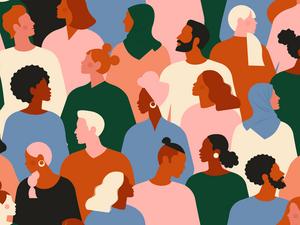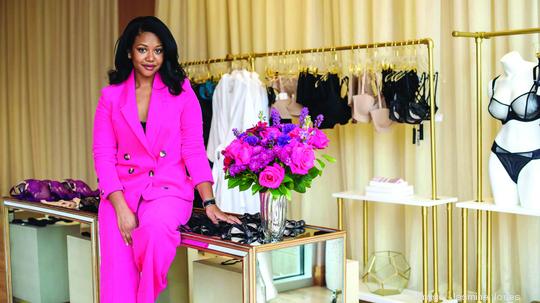
Editor’s note: “My Story” is where business executives share their personal and professional backgrounds and journeys that have made them who they are, in their own candid words, from the challenges of confronting stereotypes to the glory in overcoming them. Amid calls for racial justice, we can only make real change with greater awareness and understanding — and the ability to learn from each other’s experiences.
Lately, I’ve been thinking about my grandmother’s life and how it shaped me into the CEO that I am today. My business is not only core to who I am as a woman, but it is also an extension of my family’s history.
My grandmother, Josephine, was born in 1936 in a small town in Virginia. She worked as a nurse until she retired. She saved the lives of countless children throughout her career. She purchased a home. She raised three daughters. She survived breast cancer once, then succumbed to it in 2009. It was her journey that inspired me to change the way women shop for mastectomy bras and breast forms.
After my grandmother experienced a double mastectomy, she didn’t know where to find postsurgical supplies and intimates. Her only option was to purchase mastectomy bras and breast forms in a medical supply store. She was measured and fitted behind rows of bedpans and walkers. Her choices in bras were limited to two colors and, for breast forms, only one color. It was impossible to find breast forms that matched her skin tone and sizing options were extremely limited. These items were expensive, and my grandmother paid out of pocket, not knowing these costs were covered by insurance. Unfortunately, this is still the reality for most breast cancer survivors 30 years later.
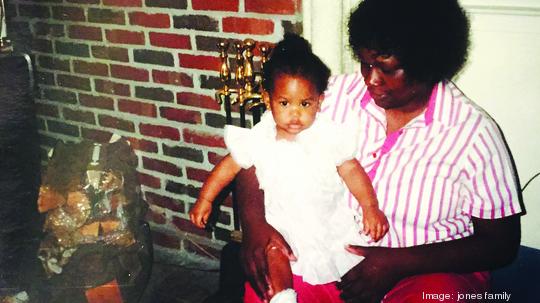
There are almost 4 million women in America living with a history of breast cancer — 270,000 women are diagnosed every year. According to data released by the federal Agency for Healthcare Research and Quality, 60% of women choose not to have reconstructive breast surgery. These women deserve to see themselves represented in the intimates space. Their chest walls may be scarred, but they deserve to shop with dignity, including a range of sizes and skin tones. While we are seeing great strides from brands to be more inclusive in sizing and advertising, the postmastectomy industry remains woefully behind the curve at addressing the needs of survivors.
When I realized little had been done to improve the selection or experience for these women, I began to ask questions and examine opportunities by asking: “What is possible?” I took a deep breath, invested my own money and opened the doors of Cherry Blossom Intimates in 2018. My boutique is dedicated to improving the shopping experience of breast cancer survivors. It’s a beautiful, bright space with lace negligees and satin chemises hanging from gold fixtures. And while I’ve created a beautiful shopping experience, the store is much more than a place to buy something sexy, it is a place for breast cancer survivors to shop for intimates that fit their lives and their new bodies.
The store is a fully accredited medical facility, certified by the Board of Certification and the Centers for Medicare & Medicaid Services. This allows us to bill insurance directly for our mastectomy customers’ bras and breast forms. The business has been thriving, and we closed our $1.25 million pre-seed funding round.
This journey hasn’t been without challenges. I remember attending my first durable medical equipment (DME) supplier conference while in the early stages of building the business. At lunch, a fellow conference attendee mistook me for a waitress. Perhaps they didn’t expect a young Black woman to be the owner of a medical facility. From that moment on, I looked at the DME industry from the view of a 20-something entrepreneur and a woman of color. We are missing from the industry, and the worst part is that people do not even expect us to be there. If I could share with the world who I am and who women like me are, I would explain that we are no different from them. We want to experience respect, dignity, and to see ourselves when we shop.
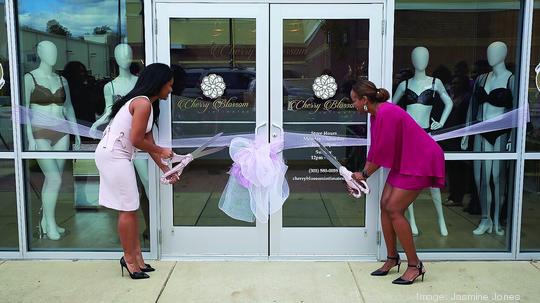
From that day, I expanded skin tone selections to our product mix. I started adding facets of new technology into our business. I leveraged 3D printing to create custom breast prosthetics. I knew a virtual fitting platform could reach more customers in their homes, especially during a pandemic, so I launched Myya.com, which connects women all over the country with certified fitters, mastectomy bras and breast forms.
I believe our differences in background, histories and perspectives make us stronger business owners and leaders. Had I not experienced that glaring “you’re different from us” wake-up call at the conference, I am not sure that I would have truly embraced my unique perspective in the industry. Had my grandmother not shopped for bras in medical supply stores, I wouldn’t have seen the white space in the market. These moments came together because of my differences, not in spite of them.
I’m proud to be at this juncture in my business, but there is more work to be done to ensure that women continue to leverage their unique experiences to build thriving businesses. According to PitchBook, in 2021, only 2% of venture capital dollars went to female-founded startups, even though data confirms that female-founded companies perform 63% better overall than all-male startup teams. I have no doubt that founders of color would have similar success rates if given the same opportunity and resources. Perhaps VC is faced with the challenge of preconceptions of women founders and founders of color, or maybe they don’t realize the value and promise of different perspectives to illuminate new, profitable businesses. Until we recognize that our distinct differences can be the greatest asset to the development of innovation, solutions and growth, we are missing an opportunity.
All of this is more important to me than ever because this April, my family is expecting a baby girl. Our first. I wonder what the world will be for her? I hope breast cancer will be eradicated in her lifetime. When she starts her career, will she be in a world where women of color as CEOs and leaders are an anomaly, or the standard? I want her to feel included, seen and safe so she can blossom without limits.
The difference between the world that existed for my grandmother and the world my daughter is entering begins with you and me. Be the leader, the funder, the community resource who understands the opportunities that exist in experiences outside your own. We can create endless opportunities for businesses and lives to flourish.
Jasmine Jones is founder and CEO of Myya and Cherry Blossom Intimates.
